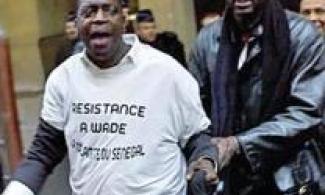
If you had told me just a few years ago that former Libyan ruler Muammar Gaddafi would be pushed out of power in a matter of years, I would think that you were both whimsical in thinking and wasting my time.
If you had told me just a few years ago that former Libyan ruler Muammar Gaddafi would be pushed out of power in a matter of years, I would have thought that you were both whimsical in thinking and wasting my time.
Alas, I have seen even more transpire to these seemingly permanent fixtures of Africa’s political life. Gaddafi was driven out of power and suffered a gruesome end whereas former Egyptian President Hosni Mubarak continues to fight for his freedom in an Egyptian prison — a trial he is likely to lose.
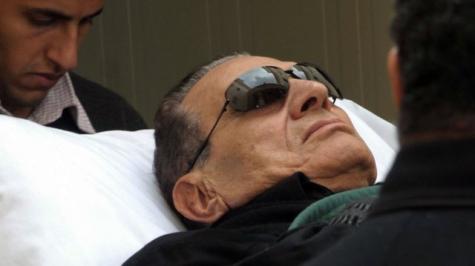
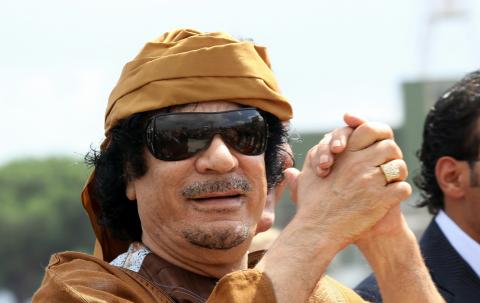
The overthrow of Zine al-Abidine Ben Ali, former president of Tunisia — whose fall marked the first political casualty of the Arab Spring — seemed to happen too quickly that some in his quarters must have viewed his departure from power as premature, even cowardly.
Nobody could have ever imagined that desperate citizens would set themselves on fire in Tunisia, or that the Egyptian revolution would result in a wave of democratic fervor across Africa and the Arab world, the reverberations of which we are still feeling today.
Real Threat of Prosecution
Former President Blaise Compaoré’s spectacular departure from power in Burkina Faso is only the most recent case in unexpected turnover in leadership in an African country.
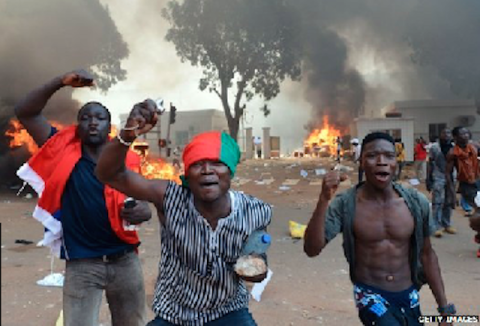
At first, all seemed normal with citizens rising to show their anger over Compaoré’s move to extend his 27-year rule. The Parliament was burnt down and the government backed down on its original intentions. But the demonstrators stayed on the streets, apparently having had a taste of power, demanding for the president to leave immediately and he promptly went into exile. All of this in four days!
It would appear that Compaoré suddenly had a change of heart at the last minute. After all, a day before stepping down, he did publicly announce that he would only lead the country for the rest of his term. Though we may never know the real reason, it is possible that major stakeholders of the country’s leadership, including the military, forced Compaoré to leave before things got out of control, with many civilians being killed.
Is it possible that Compaoré’s legal team advised him to leave the presidency before risking the deaths of too many civilians at the hands of his security forces and the possibility of a future court date at the International Criminal Court (ICC) or another tribunal? Still, we know that Compaoré is now living in some exclusive part of Yamoussoukro, the capital of Ivory Coast, with millions of dollars and a good chance of avoiding forced repatriation anywhere.
Despite successfully amending the constitution to allow for his controversial third-term presidential bid, former Senegalese President Abdoulaye Wade was eventually forced to leave power after losing the presidential election to Macky Sall, an invigorated opposition candidate. It seems that the large-scale protests that brought the nation to a standstill after Wade began tampering with the nation’s constitution was enough to ensure his demise in an election that was relatively free and fair.
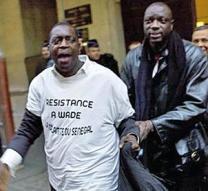
Fortunately, Wade stepped down at the proper time. But the episode reinforced the feeling that a “democratic” occurrence had become certain in Senegalese, if not, African politics.
Laurent Gbagbo, former president of the Ivory Coast, also learned the hard way that some things had changed in African affairs. He found himself on the wrong side of the table with the African Union (AU) and the United Nations (UN) when he refused to leave power after losing elections to Alassane Ouattara, who was widely seen as the winner.
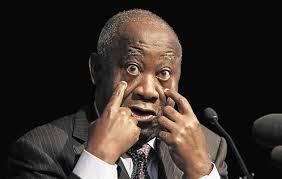
Gbagbo’s woes only started when the UN bombed him into compliance and continues as he spends his days securely locked up within the ICC’s prisons system. In hindsight, I bet Mr. Gbagbo would prefer to have been spending his remaining years anywhere else.
An uncertain, but definite, wave of change also blows across the sands of Kenya. No one could have imagined that President Uhuru Kenyatta, the son of Kenya’s founding father and a sitting head of state, would be forced to report to the ICC for allegedly fomenting violence after the disputed 2007 elections.
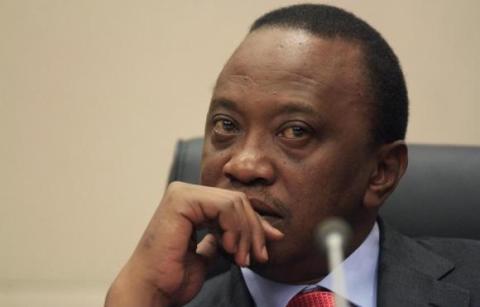
His appearance at the Hague this October was all the more surprising given that he had refused to submit himself to ICC summons on previous occasions and had secured the unreserved support from the AU.
So, Kenyatta’s cooperation with ICC summons this year should be seen as a carefully considered course of action his legal team deems to be prudent, even if he is expected to win his case due to insufficient evidence.
President Omar al-Bashir of Sudan is another sitting African head of state who faces the spectre of internationally enforced justice anytime he travels outside of Africa’s borders.
Despite a firm belief that he will continue to escape the reach of the ICC, I join former ICC chief prosecutor Luis Ocampo in expecting to see President al-Bashir plead his case at a war crimes court at a date that will be determined in the future.
In August, we witnessed political incidents in Southern Africa’s Lesotho, where Prime Minister Thomas Thabane fled to neighboring South Africa to escape an alleged coup after attempting to switch General Kennedy Tlai Kamoli, the head of Lesotho’s armed forces.
A series of political interventions facilitated by regional powers has allowed Prime Minister Thabane back into the country as the head of government, even if the troublesome military chief continues to resist replacement.
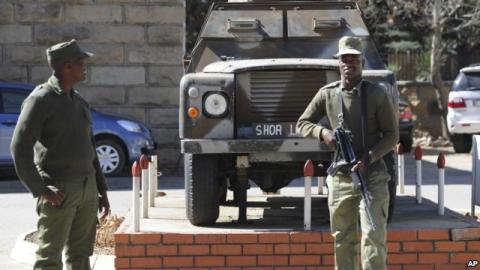
Still, if you carefully study the general’s tone you will probably determine that his language throughout the crisis has been deliberately conciliatory and he has consistently denied having staged a coup. This may just be in case he finds himself hauled before a court under prosecution for coup or insubordination.
In conclusion, there’s one thing you can bet on in today’s Africa. The presidents of Equatorial Guinea, Eritrea, Cameroon, Gambia, Zimbabwe and several other African countries have put their contingency plans in place in the event that an otherwise routine government-attributed act should almost spontaneously result in a thundering mass of angry protesters at their front doors. It has happened several times now.
The writer is Sami Disu. Follow on twitter: @disusami